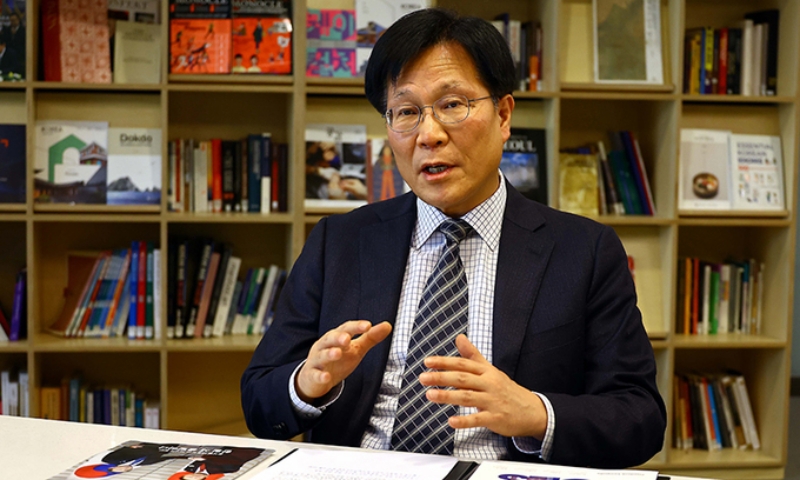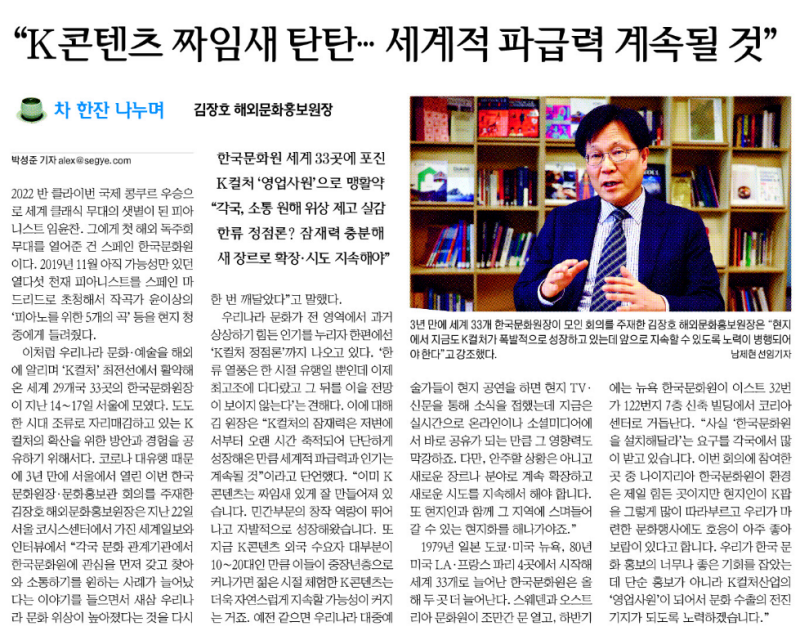
Korean Culture and Information Service (KOCIS) Director Kim Jangho on the morning of March 22 speaks to the daily Segye Ilbo in an interview at the KOCIS Center in Seoul's Jung-gu District.
By Park Hye Ri
Photos = Segye Ilbo
Korean Culture and Information Service (KOCIS) Director Kim Jangho said Korean Cultural Centers (KCCs) worldwide "will strive to become 'sales representatives' for the K-Culture industry, not just a promoter, to serve as advanced bases for cultural exports."
In an interview published on March 29 by the daily Segye Ilbo, he said, "We grabbed a great opportunity to promote Korean culture."
The hourlong interview was held on the morning of March 22 at the KOCIS Center in Seoul's Jung-gu District.
The director mentioned the high attention KCCs have received in their respective regions.
Citing continuous requests from many countries for setting up more KCCs abroad, he said, "I realized once again that Korean culture's status has risen after hearing of the rising number of cultural agencies in countries first showing interest in KCCs and later visiting and communicating with them."
KCCs are the nation's front-line institutions abroad that promote and export Korean culture. Founded in 1979 with a branch in Tokyo and another in New York, such centers are now in 33 cities of 28 countries and two more will be opened this year, namely in Austria and Sweden.
Director Kim also downplayed the "K-Culture Peak Theory" saying the Hallyu boom has reached its pinnacle.
"The global impact and popularity of K-culture will continue, as its potential has accumulated from the bottom up over a long period of time and shown solid growth," he said.
"K-content is already well-organized and made," he added. "Since the majority of foreign K-content consumers are in their teens and 20s, when they reach middle age, K-content has a greater possibility of naturally continuing since they experienced it as youth."
"But we cannot rest on our laurels and have to keep expanding into new genres or fields and constantly make new efforts," he said. "Together with the locals, localization is a must to permeate a region."
The newspaper also said 33 officials comprising 28 KCC directors active in 29 countries and five cultural promotion officers from March 14-17 gathered in Seoul to discuss expansion of Korean culture and share their experiences.

This is an interview published on March 29 by the daily Segye Ilbo with Korean Culture and Information Service Director Kim Jangho.
hrhr@korea.kr